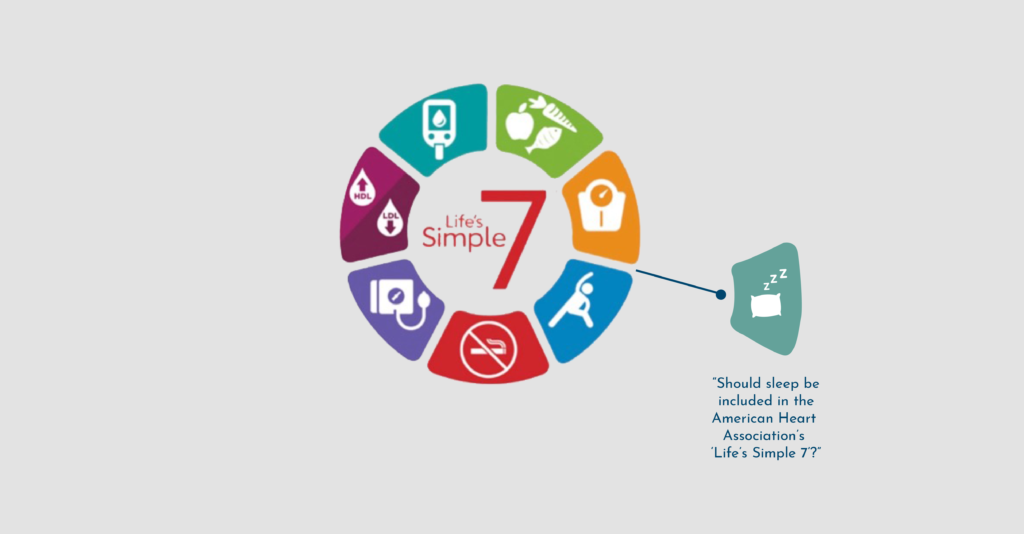
10 years ago, the American Heart Association rolled out an initiative called Life’s Simple 7, aimed at raising awareness of multiple factors that can contribute to cardiovascular disease.1 These seven factors; blood pressure, cholesterol, blood sugar, smoking, weight, diet, and exercise can have a profound impact on cardiovascular health. In one study involving 7,622 participants, those who scored in the ‘ideal’ category for at least five of Life’s Simple 7 reduced their risk of heart-releated death by 78% compared to participants who did not meet those metrics.2
Life’s Simple 7 has come a long way in raising risk factor awareness in the minds of clinicians and patients. However, as time has passed and additional research has been conducted, we’ve become aware of one additional cardiovascular risk factor that has been left out of heart health discussions for too long. Sleep.
“Sleep, like diet and physical activity, is a health behavior we engage in every day,” says Nour Makarem, an associate research scientist at Columbia University Irving Medical Center in New York.3 “Increasingly, it is linked to not only the risk of heart disease but also to the risk factors that lead to cardiovascular disease”. 3
In 2020, Dr. Nour Makarem’s team evaluated 1,920 patients who participated in the MESA Sleep study. 3 The team investigated a variety of sleep characteristics and their impact on cardiovascular health. 3 Dr. Makarem’s research found that poor sleep quality was strongly associated with cardiovascular disease
- Patients with obstructed sleep apnea had a 200% greater chance of poor heart health.
- Variations in sleep duration were associated with a 24% greater risk of poor heart health
- Variations in sleep timing were associated with a 31% greater risk of poor heart health
The findings of this research highlight the important role that sleep can play in cardiovascular outcomes.3
“Despite this importance,” says Dr. Makarem,”unlike diet and exercise, sleep has received less attention and is not currently included in guidelines for cardiovascular disease prevention or as a measure of cardiovascular health.”3
With this in mind, we propose adding sleep to Life’s Simple 7 and making it Life’s Essential 8.
With 50 to 70 million Americans suffering from sleep disorders including sleep apnea,4 raising awareness of the link between sleep and cardiovascular health (and more importantly, screening for sleep disorders in the cardiology office) could significantly help improve cardiovascular outcomes.
American Heart Health month is the perfect month to begin stretching the Life’s Simple 7 tool to fit the true realities of heart disease risk factors. Switch the conversation from “Life’s Simple 7,” to “Life’s Essential 8,” and be inclusive of all risk factors that could potentially impact your patients’ cardiovascular well-being.
References:
- Lifes Simple 7. heart.org. https://www.heart.org/en/professional/workplace-health/lifes-simple-7. Accessed February 1, 2021.
- Ford ES, Greenlurd KJ, Hong Y. Ideal Cardiovascular Health and Mortality From All Causes and Diseases of the Circulatory System Among Adults in the United States. Circulation. 2012;125(8). doi:CIRCULATIONAHA.111.049122
- https://doi.org/10.1161/circ.141.suppl_1.36
- National Center for Chronic Disease Prevention and Health Promotion, Division of Population Health Accesseed February 10, 2020.
